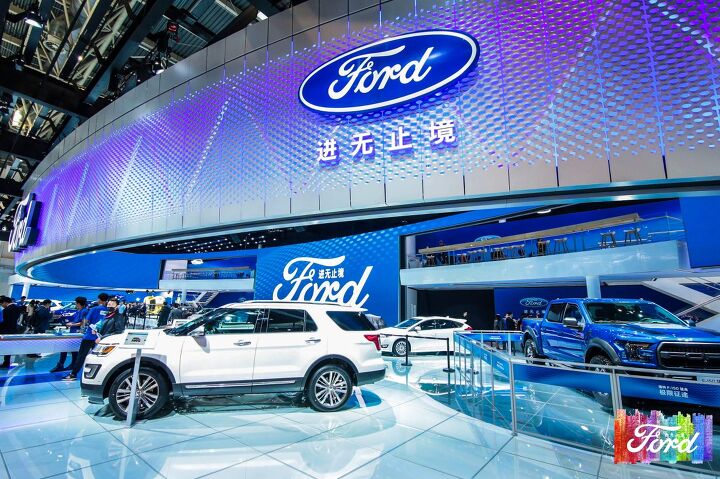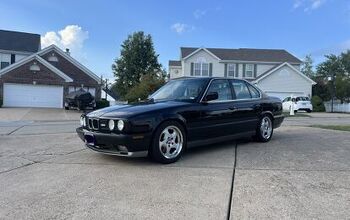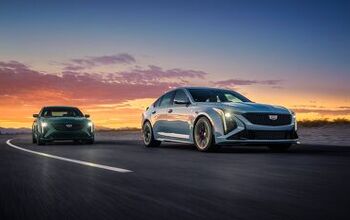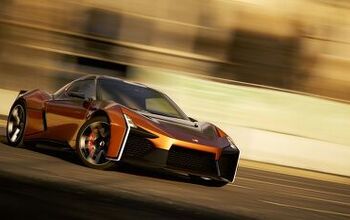Ford Still Can't Figure Out China, GM Similarly Vexed

Ford has struggled to improve market share in China for years now, as decades of economic growth made the region’s overwhelmingly large population too tempting for global manufacturers to pass up. But it hasn’t been an easy road for foreign automakers. Many entered the region saddled with a lack of brand awareness and were required to enter into joint ventures with Chinese firms to gain access (Ford has three). U.S. products have since faced additional scrutiny as American-Sino relations soured; at the same time, the whole of the market appears to be heading in the wrong direction.
While this hurt plenty of automakers that aren’t Ford, the Blue Oval has really taken it on the chin. The company reported a 26.1 percent sales decline for 2019, marking its third straight year of negative growth in China. At first blush, that may not appear relevant to what’s happening in the West. But Ford hasn’t seen its market share in the People’s Republic rise above 5 percent since 2008 (it’s about half that now), despite putting plenty of resources behind the project.
Plenty of this is out of Ford’s hands. It didn’t start the trade war, nor did it expect China’s auto market to start rolling backwards down a hill. Still, it is going to have to cope with the situation, which is unlikely to improve for at least another year. CAMM (China Association of Automobile Manufacturers) is already predicting a 2 percent decline in auto sales for 2020. While smaller than the 8 percent loss endured last year, it’s just a guess. Things may again turn out to be worse than expected.
A reported by Reuters, Anning Chen, CEO of Ford Greater China, claimed 2019 was another challenging year for the company, adding that it saw its market share in the high-to-premium segment stabilize while declines in the mainstream segment narrowed in the second half of the year.
“The pressure from the external environment and downward trend of the industry volume will continue in 2020, and we will put more efforts into strengthening our product lineup with more customer-centric products and customer experiences to mitigate the external pressure and improve dealers’ profitability,” he said.
Over the next three years, Ford wants to introduce at least 30 new models in the Chinese market — a third of them hybrid or fully electric. Unfortunately, the ludicrously high demand for EVs everyone predicted hasn’t manifested. Chinese EV sales through July were tabulated at 696,000 for 2019 by CRU Group. While that represents a year-over-year increase of 41 percent, the industry anticipated more.
There are a few silver linings, however. Lower than expected EV sales have helped keep battery costs from exploding through the ceiling and the electric take rate could improve as the rest of the year’s data comes in. Ford also had some minor victories of its own. “[Ford] managed to stop the bleeding and increase average selling price,” said Bill Russo, head of Shanghai consultancy Automobility Ltd. “Good sign, but they need to do more to localize their business model to address the growth in non-hardware related mobility and digital services if they are to recapture growth.”
Ford is hardly the only foreign manufacturer subjected to unfavorable conditions in China. General Motors, which managed to snag a much larger share of the Asian market, reported Chinese sales falling by 15 percent to 3.09 million deliveries last year — and that’s coming on the heels of a 10 percent drop in 2018. It’s expecting more trouble in 2020, despite having axed its European endeavors to focus more on Asia.
Some outsiders, like Volkswagen Group, did manage to grow their business. The company reported 2019 deliveries improving by 1.7 percent to 3,163,200 vehicles. That would seem to prove that the situation isn’t hopeless, even with the Chinese economy going through an awkward phase. VW attributed the win to a product offensive aimed at covering more segments. Since Ford is also about to pull the trigger on a bunch of Asia-specific models, perhaps it can change its trajectory in the region.
[Image: Ford China]

A staunch consumer advocate tracking industry trends and regulation. Before joining TTAC, Matt spent a decade working for marketing and research firms based in NYC. Clients included several of the world’s largest automakers, global tire brands, and aftermarket part suppliers. Dissatisfied with the corporate world and resentful of having to wear suits everyday, he pivoted to writing about cars. Since then, that man has become an ardent supporter of the right-to-repair movement, been interviewed on the auto industry by national radio broadcasts, driven more rental cars than anyone ever should, participated in amateur rallying events, and received the requisite minimum training as sanctioned by the SCCA. Handy with a wrench, Matt grew up surrounded by Detroit auto workers and managed to get a pizza delivery job before he was legally eligible. He later found himself driving box trucks through Manhattan, guaranteeing future sympathy for actual truckers. He continues to conduct research pertaining to the automotive sector as an independent contractor and has since moved back to his native Michigan, closer to where the cars are born. A contrarian, Matt claims to prefer understeer — stating that front and all-wheel drive vehicles cater best to his driving style.
More by Matt Posky
Latest Car Reviews
Read moreLatest Product Reviews
Read moreRecent Comments
- Kwik_Shift_Pro4X I wonder if Fiat would pull off old world Italian charm full of well intentioned stereotypes.
- Chelsea I actually used to work for this guy
- SaulTigh Saw my first Cybertruck last weekend. Looked like a kit car...not an even panel to be seen.
- GregLocock Bear in mind this is purely a branding exercise and has no significant input from AM. Buying one of these is like buying a Pink Floyd T shirt, no Dave and Nick didn't personally sew it up for you.
- Lou_BC This is the sort of thing that lands 15 billion dollar Honda investments in Canada. One political party tries to undo everything the other one has done.


































Comments
Join the conversation
Apparently Ford's CEO should ask Elon Musk how to market a car in China. Musk's company not only is the only one not partially owned by the Chinese government but he also managed to get a $1.4 billion loan from them to build his cars there. What did George Carlin say about being in a club?
Oldschool - Who in the heck buys a Mister Coffee coffee maker for $100 ? Especially at Walmart! My last 2 Mister coffee's were between $30-$40 at Walmart ( I use filtered water so the coffee taste better than tap) The schmuck who goes to Starbucks daily/weekly should invest in one of these brewers, most coffee makers operate on the same low cost principle, cold water in, hot water out, drip over coffee, down the spout! ;-)